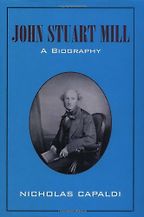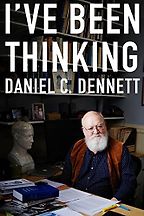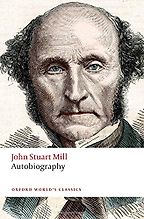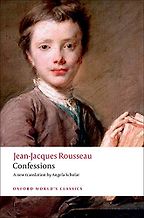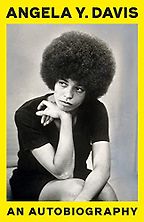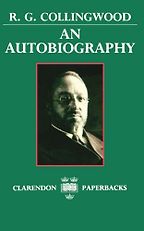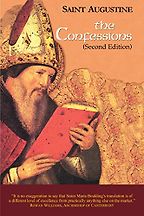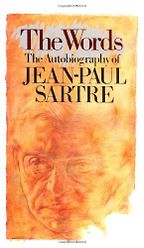Philosopher Memoirs
Last updated: October 07, 2025
“Mill is seen now asa liberal hero. But he was also one of the great poetry critics of the 19th century. He wrote some of the best essays about theism. He was a very, very broad, deep, synthetic thinker. Capaldi really gets this. He takes him seriously. And you will understand Mill so much better through this book than through the other biographies.” Read more...
The Best Intellectual Biographies
Henry Oliver, Biographer
I've Been Thinking
by Daniel Dennett
Philosopher Daniel Dennett describes himself as a pack rat or a magpie - picking up ideas and facts that might be useful from a wide range of sources. His memoir reflects that. He has made connections with researchers in many fields, particularly evolutionary theory, neuroscience and computing and his distinctive philosophical career reflects that. He’s best known as a philosopher of consciousness, a defender of a compatibilism about free will, and as an uncompromising atheist. But the book describes his wide interests (which include music, sculpture, farming, and sailing), and includes some great anecdotes as well as a bit of score-settling with philosophers he has disagreed with over the years.
Autobiography
by John Stuart Mill
John Stuart Mill wrote his memoir because while he described his life as "uneventful" he thought it might be of interest to people because of his "unusual and remarkable" education. He also wanted to acknowledge the varied thinkers who had influenced him. This included his wife, Harriet Taylor, with whom he worked closely. Mill wrote that his most famous book, On Liberty, "was more directly and literally our joint production than anything else which bears my name, for there was not a sentence of it that was not several times gone through by us together, turned over in many ways, and carefully weeded of any faults, either in thought or expression, that we detected in it."
“The most famous of his autobiographical writings is the Confessions, but there’s also Reveries of a Solitary Walker, and the famous Dialogues, where you have a very paranoid Rousseau in conversation with another character, ‘the Frenchman,’ concerning the faults of an alter ego, Jean-Jacques. So Rousseau did tell the story of his own life, but Damrosch tells it very well in English. He also has some reflections on the veracity of Rousseau’s own autobiographical writings, which is an interesting aspect of Damrosch’s book. On the whole, he finds that Rousseau was quite truthful. Of course there are elements of the story Rousseau tells about himself where he is self-deceived, or indeed paranoid, but so far as telling the truth about the facts and external events of his life, he seems to have been quite honest with us.” Read more...
The best books on Jean-Jacques Rousseau
Chris Bertram, Philosopher
“This is an amazing travelogue. It shows the way she viewed the world when she travelled to other places. It captures that kind of in-betweenness that people feel when they’re not at home, but discovering something that they’ve longed to see for a long time.” Read more...
The Best Simone de Beauvoir Books
Kate Kirkpatrick, Biographer
An Autobiography
by Angela Davis
The memoir of Angela Davis, the American political activist and philosopher, first published in 1974 and republished in 2022.
“It was only after I came to Harvard to teach that I sat down and read his wonderful autobiography. I can’t think of many experiences in my life more exciting than that. It’s a tremendously profound reflection on history and historical method. Collingwood was a very eclectic thinker. He did both archaeology and philosophy, and his insight that historians are re-enacting – even recreating – the past is very profound.” Read more...
Niall Ferguson on His Intellectual Influences
Niall Ferguson, Historian
“This is St Augustine of Hippo in North Africa, which is now in Algeria. He lived from 354 to 430 so at the end of the fourth and the beginning of the fifth century. St Augustine of Hippo wrote a huge amount and he went on a great spiritual pilgrimage from Manichaeism to Platonism and eventually found his way into Christianity. Confessions is a wonderfully personal book, but not in a lurid sense like a modern confession. The whole thing is an almost agonised prayer to God on this kind of search. One of the great things about St Augustine, like so many Christians then, but less now, is that he had a great sense of God as the source of all beauty, as well the source of goodness and truth. There is this wonderful phrase, ‘Oh thou Beauty so ancient and so fresh.’ I think that through The Confessions you get an insight into a passionate mind on a spiritual journey.” Read more...
The best books on Christianity
Richard Harries, Theologians & Historians of Religion
“The Words is a memoir of Sartre’s childhood. It takes him up to the age of 10, and it is a brilliant piece of self-analysis. I think of it as philosophical psychoanalysis, because he decodes philosophically his inner conflicts and his very deep and perhaps unconscious motivations. Sartre’s childhood was spent in a bourgeois household, full of heavy furniture, grandfather clocks and books. He grew up with his mother and his grandfather (his father died when he was very little). His mother was related to the Schweitzers, so it was a very distinguished French family. He was a very coddled, adored and stifled child. His grandfather initiated him into the cult of culture. And the memoir is really about the effect of the cult of culture on him – about a childhood spent among books, and a child who has no self outside of his relationship to books and the written word…it is a renunciation then of the worship of literature. In order to confirm his grandfather’s and his mother’s idea of him, he reads all the time. He hardly goes out of this rather stifling apartment. He creates himself, a kind of false self, through his identification with literary characters. He begins to strike literary postures. He has no access to himself and to his emotions except through literature. Eventually, he realises that this prevents him from having a real self, from living a real life, from engaging with the present and from taking risks. Among other things, it is a brilliant analysis of bad faith. So Sartre’s leap from his early youth to his later philosophical notions is quite direct, through a reaction against the worship of culture and the unengaged, tradition-formed self.” Read more...
Eva Hoffman recommends the best Memoirs
Eva Hoffman, Memoirist
